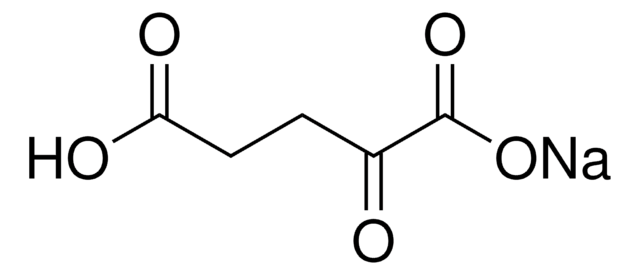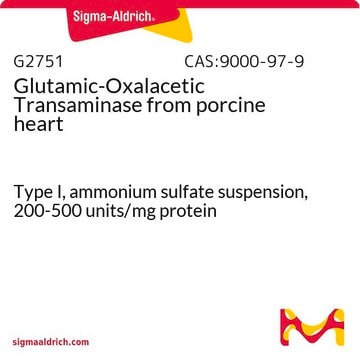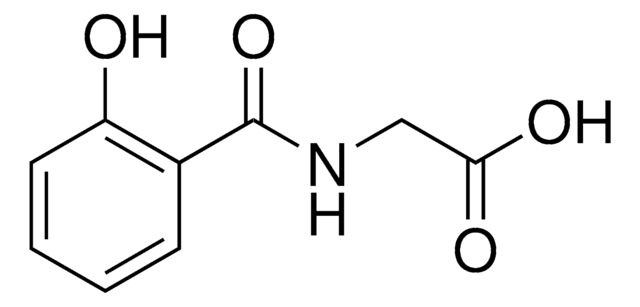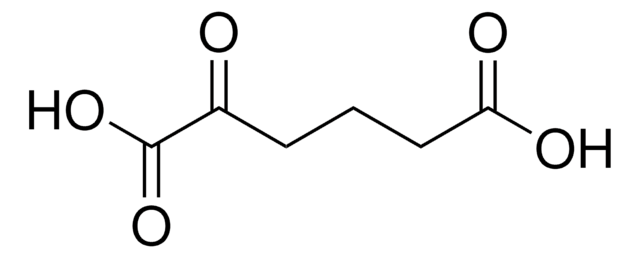K1750
α-Ketoglutaric acid
≥98.5% (NaOH, titration)
Sinónimos:
2-Oxoglutaric acid, 2-Oxopentanedioic acid
About This Item
Productos recomendados
Nivel de calidad
Análisis
≥98.5% (NaOH, titration)
formulario
powder
solubilidad
water: 100 mg/mL, clear to slightly hazy, colorless to faintly yellow
temp. de almacenamiento
2-8°C
cadena SMILES
OC(=O)CCC(=O)C(O)=O
InChI
1S/C5H6O5/c6-3(5(9)10)1-2-4(7)8/h1-2H2,(H,7,8)(H,9,10)
Clave InChI
KPGXRSRHYNQIFN-UHFFFAOYSA-N
¿Está buscando productos similares? Visita Guía de comparación de productos
Descripción general
Aplicación
- to study its effects on swine fecal microflora in an in vitro fermentation system
- to study its effects on the activation of CD8+ T-cells
- as a substrate in glutamate oxaloacetate transaminase (GOT2) mitochondrial lysate assay
Acciones bioquímicas o fisiológicas
Palabra de señalización
Danger
Frases de peligro
Consejos de prudencia
Clasificaciones de peligro
Eye Dam. 1
Código de clase de almacenamiento
11 - Combustible Solids
Clase de riesgo para el agua (WGK)
WGK 3
Punto de inflamabilidad (°F)
Not applicable
Punto de inflamabilidad (°C)
Not applicable
Equipo de protección personal
dust mask type N95 (US), Eyeshields, Gloves
Certificados de análisis (COA)
Busque Certificados de análisis (COA) introduciendo el número de lote del producto. Los números de lote se encuentran en la etiqueta del producto después de las palabras «Lot» o «Batch»
¿Ya tiene este producto?
Encuentre la documentación para los productos que ha comprado recientemente en la Biblioteca de documentos.
Los clientes también vieron
Nuestro equipo de científicos tiene experiencia en todas las áreas de investigación: Ciencias de la vida, Ciencia de los materiales, Síntesis química, Cromatografía, Analítica y muchas otras.
Póngase en contacto con el Servicio técnico












